14th November 2023 Newsletter

Do you ever work with clients who experience excessive guilt concerning things they have done (or not done)? This week we’re releasing an updated Responsibility Pie Chart exercise, which helps clients reassess their level of responsibility for negative events.
We’ve also extended our multi-lingual library with new German translations, and our research roundup highlights several papers relating to the Unified Protocol (UP) – a recent addition to our available titles from the Treatments That Work® series. Enjoy!
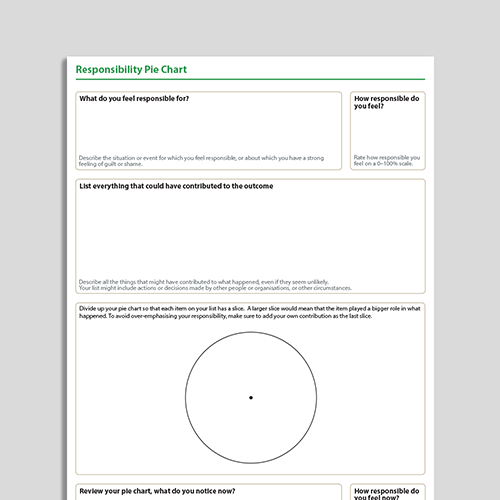
Responsibility Pie Chart
The Responsibility Pie Chart exercise is designed to guide clients through the process of clarifying and re-evaluating their responsibility for negative events. The goal is not to exempt the client from responsibility, or downplay accountability when warranted, but rather to foster a more balanced and reality-oriented perspective.

New German Translations
This week we’re releasing 7 new German translations from our popular Cognitive Distortions Series. Translated resources include: All-Or-Nothing Thinking, Arbitrary Inference, Catastrophizing, Disqualifying Others, Disqualifying The Positive, and Unhelpful Thinking Styles (Common and Extended versions).
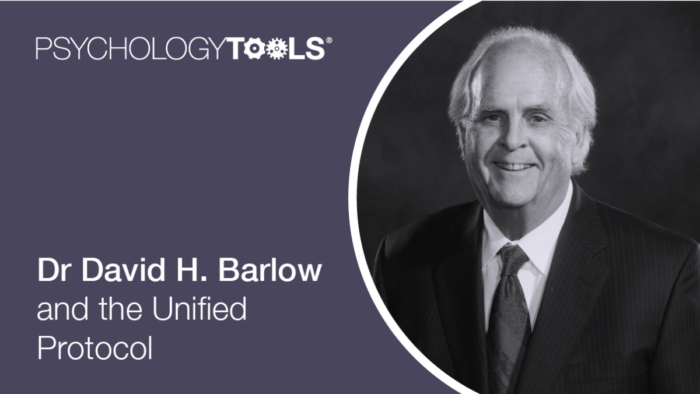
Professor David H. Barlow And The Unified Protocol
Last week, we sat down with Professor David H. Barlow to talk all things Unified Protocol. In this article, Dr Barlow shares some of the interesting history behind the inspiration and development of the Unified Protocol, as well as his perspective on the main benefits of this approach for both clinicians and clients.
Research Summaries
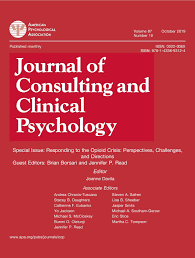
Effects Of Unified Protocol Skill Use Upon Anxiety And Depression
It is not unexpected that greater use of a helpful skill can lead to further improvements, but findings like this are a useful reminder – both for therapists and for clients.
The Unified Protocol (UP) consists of five core modules which teach specific skills to be used between sessions. In this secondary data analysis of a 2021 RCT of the UP in adults without at least one anxiety or depressive disorder, Matthew Southward and Shannon Sauer-Savala assessed ‘skillfullness’ according to: whether clients understood the skills they had learned, how often they used the skills, how well they used the skills, and how effective the skills were.
“Within-person reductions in anxiety were predicted by greater transtheoretical skillfulness and more frequent UP skill use, and within-person reductions in depression were predicted by greater transtheoretical skillfulness and more frequent use of alternative actions”.
Southward, M. W., & Sauer-Zavala, S. (2022). Dimensions of skill use in the unified protocol: Exploring unique effects on anxiety and depression. Journal of Consulting and Clinical Psychology, 90(3), 246.
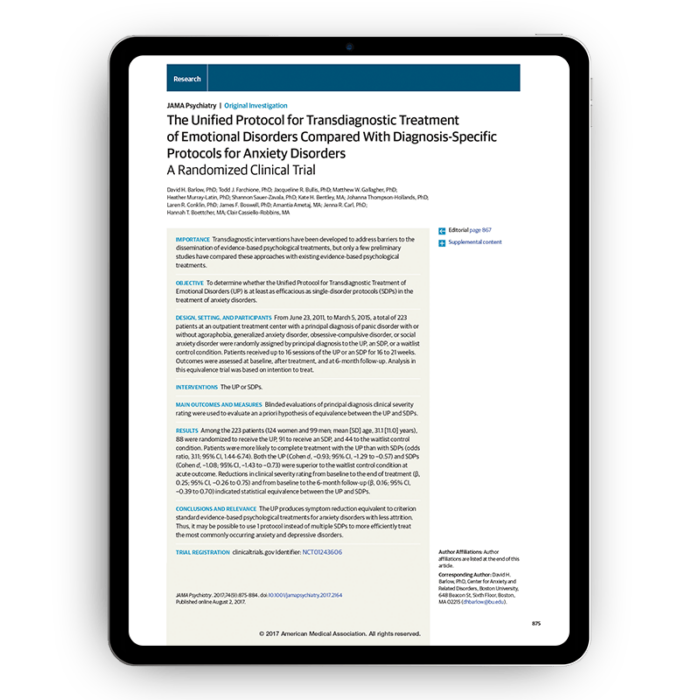
The Unified Protocol Compared With Diagnosis-Specific Protocols in the Treatment of Anxiety Disorders
This paper asks the key question: is a transdiagnostic psychological treatment, the Unified Protocol, at least as effective as various well-established single-disorder protocols in the treatment of anxiety disorders?
The results from this RCT suggest that it is. The authors found that the UP produced similar reductions in the severity of several different anxiety disorders to single-disorder CBT protocols (SDP), both acutely and after 6 months. If the UP can produce comparable results to diagnosis-specific treatment protocols, then it could be a more efficient approach for care providers, facilitating wider access to treatment.
"The use of transdiagnostic protocols like the UP have the potential to address two of the primary challenges in the treatment of anxiety disorders: 1) high rates of comorbidity, and 2) low utilization of evidence-based psychotherapy treatments in routine practice. By targeting shared mechanisms across disorders, the UP is a more cost-effective, efficient approach for addressing multiple emotional disorders concurrently that also could reduce training burden for providers."
Barlow, D. H., Farchione, T. J., Bullis, J. R., Gallagher, M. W., Murray-Latin, H., Sauer-Zavala, S., … & Cassiello-Robbins, C. (2017). The unified protocol for transdiagnostic treatment of emotional disorders compared with diagnosis-specific protocols for anxiety disorders: A randomized clinical trial. JAMA psychiatry, 74(9), 875-884.
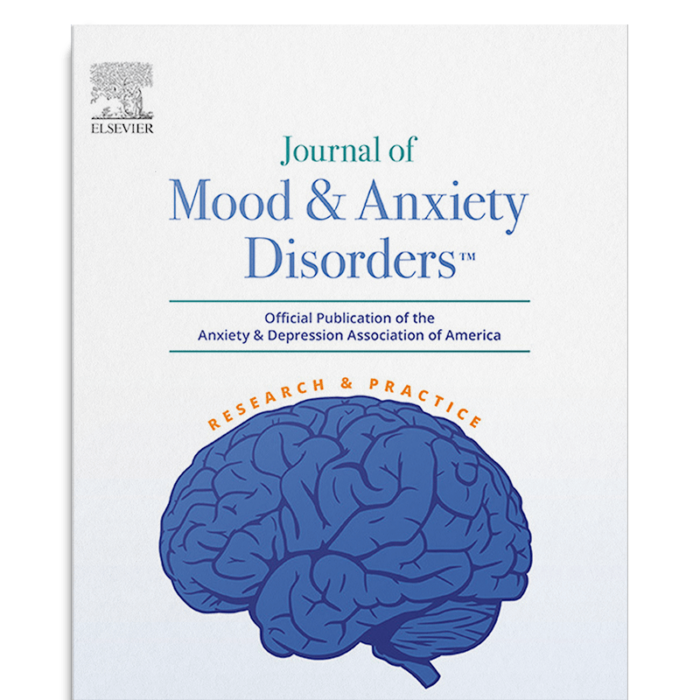
The Unified Protocol Compared With Diagnosis-Specific Protocols in the Treatment of Anxiety Disorders (Three-Year Follow-Up)
This paper sought to evaluate whether the treatment gains reported at post-treatment in the previous study were maintained at the 36-month follow up. The researchers found that the similar effects of the UP and SDP treatment approaches were largely maintained after 36 months, further highlighting the utility of transdiagnostic approaches in the treatment of commonly occurring emotional disorders.
"Results further support the utility of the UP as a single intervention that produces durable treatment effects for the most commonly occurring psychological disorders through demonstration of outcomes commensurate with current first-line SDPs."
Bullis, J. R., Eustis, E. H., Curreri, A. J., Cardona, N. D., Woods, B. K., Rosellini, A. J., … & Farchione, T. J. (2023). The Unified Protocol for Transdiagnostic Treatment of Emotional Disorders compared with diagnosis-specific protocols for anxiety disorders: A three-year follow-up. Journal of Mood and Anxiety Disorders, 3, 100024.
